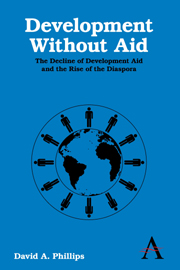Book contents
- Frontmatter
- Contents
- List of Acronyms
- Acknowledgments
- 1 Introduction: Motivation and Perspective
- 2 What Is Foreign Aid, Who Does It, Why and How Much Is There?
- 3 How Far Has Development Aid Been Effective?
- 4 Why Has Development Aid Done So Little?
- 5 Changing the Dynamics of Development
- 6 “New Aid”: New Ways to Promote and Finance Development?
- 7 Another Pathway Out of Poverty?
- 8 Exit Strategy – Replacing Foreign Assistance
- 9 Postscript
- Notes
- Index
2 - What Is Foreign Aid, Who Does It, Why and How Much Is There?
Published online by Cambridge University Press: 05 July 2013
- Frontmatter
- Contents
- List of Acronyms
- Acknowledgments
- 1 Introduction: Motivation and Perspective
- 2 What Is Foreign Aid, Who Does It, Why and How Much Is There?
- 3 How Far Has Development Aid Been Effective?
- 4 Why Has Development Aid Done So Little?
- 5 Changing the Dynamics of Development
- 6 “New Aid”: New Ways to Promote and Finance Development?
- 7 Another Pathway Out of Poverty?
- 8 Exit Strategy – Replacing Foreign Assistance
- 9 Postscript
- Notes
- Index
Summary
The Fourth High Level Forum on Aid Effectiveness in Busan, Korea follows meetings in Rome, Paris and Accra that helped transform aid relationships between donors and partners into true vehicles for development cooperation.
“OECD 50” Development Cooperation Directorate website, 22 August 2011SIR – The parlous state of the public finances in Britain provides the perfect opportunity for British taxpayers to end their half-century-long experiment with “development aid,” which has, since its inception, stunted growth and subsidised bad governance in Africa. As Africans, we urge the generous-spirited British to reconsider an aid programme they can ill afford, and which we do not want or need. A real offer from the British people to help our development would consist of the abolition of the Common Agricultural Policy, which keeps African agricultural exports out of the European marketplace. It is that egregious policy, combined with the weight of regulations, bad laws and stifling bureaucracy, subsidised by five decades of development aid, which prevents Africans from lifting themselves out of poverty. Andrew Mitchell, the Secretary of State for International Development, speaks about a “moral imperative” to combat poverty around the world. We could not agree more. The British have a unique opportunity to cut the deficit and help Africa: please, ask your new government to stop your aid.
- Type
- Chapter
- Information
- Development without AidThe Decline of Development Aid and the Rise of the Diaspora, pp. 13 - 36Publisher: Anthem PressPrint publication year: 2013



